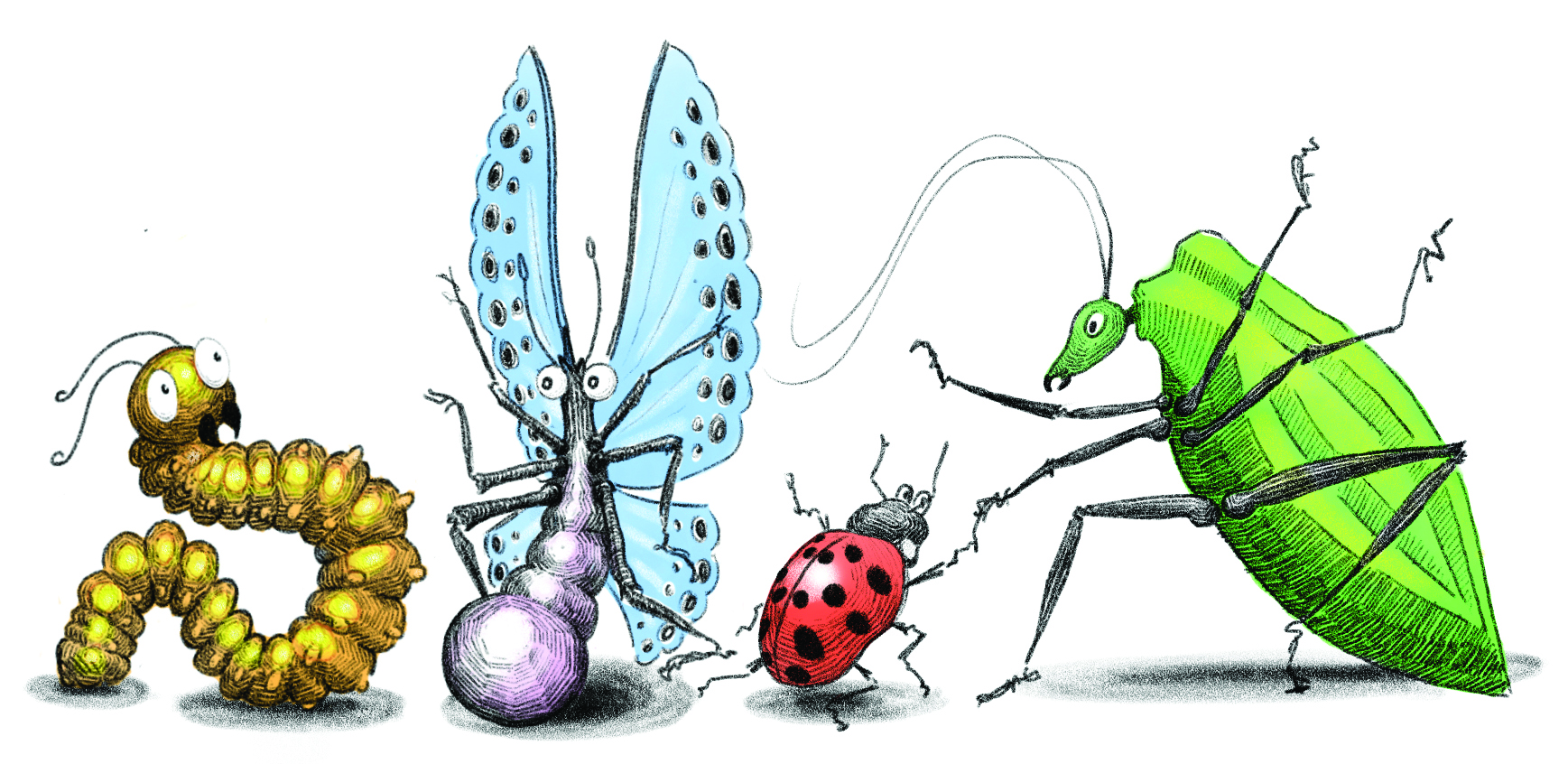Impressions of insects
December 1, 2023
 Luke Robinson
Luke RobinsonI believed there were ladybugs crawling around my room. They turned out not to be.
Instead, they were Asian lady beetles (“Harmonia axyridis”). Common on campus in the fall and winter months, Asian lady beetles collect around windows and doors to seek refuge inside as the weather gets colder. My beetles, née ladybugs, gathered on my ceiling, bookshelves and desk.
Bugs seem particularly predisposed to disguise. Examples abound, from the transformation of Franz Kafka’s Gregor Samsa to the natural camouflage of moths on tree trunks and katydids on green leaves. Still, I was frustrated at myself for falling for the beetles’ trickery. Our familiarity had been fabricated.
It’s fitting that I should be made a fool by the beetles, for I have always been deeply amazed by insects and, as a result, susceptible to their tricks. As a child, I never found myself repulsed or afraid by the presence of bugs. I would inch closer to spiders, hoping to better observe the intricate structure of their tiny legs. I always wanted (I still want) to take a bug outside instead of killing it. This does not, admittedly, take root in some arachnid humanitarianism which aims to avoid inflicting harm on any living creature, no matter how small or crawly. My desire to save bugs was based more in the joy of watching them fly away once freed. There exists a sort of transitory lightness in their escape and a tenderness in bidding permanent goodbye to a momentary friend.
I found butterflies uniquely captivating and caterpillars especially cute, drawing me to a similarly enthusiastic (though certainly more professional) entomologist: Vladimir Nabokov. Nabokov’s obsession with butterflies came to mean quite a lot to me.
To Nabokov, butterflies represent beauty ever-fleeting. A self-described sufferer of chronophobia—fear of the passage of time—time spent amongst butterflies was to him “the highest enjoyment of timelessness.”
“This is ecstasy,” Nabokov writes in The New Yorker of butterfly hunting. “It is like a momentary vacuum into which rushes all that I love.”
A sense of solidarity emerges in the appreciation of insects—the same constancy that exists in the stars. The butterfly species that Nabokov saw in Russia as a boy he found also at his homes in New York and California. He was equally as exhilarated each time he saw the treasured but elusive Karner Blue (“Lycaeides melissa samuelis”), even if the sightings were many years apart. In spotting Viceroys (“Limentis archippus archippus”) and Painted ladies (“Vanessa cardui”) from Maine to Colorado, I imagine Nabokov in awe at the same species.
In their metamorphosis, butterflies undergo a change that parallels the disguise of a moth or katydid. Their cycle, called holometabolism, moves them through four stages of total transformation: from egg to larva to pupa to adult. The caterpillar resists any stagnancy in his promise that he will eventually become a butterfly (unless, by some cruel trick of bug fate, he is destined to become a moth). Even in the chrysalis, the encased final transitional state, the butterfly continues his evolution.
The butterfly and the butterfly hunter together celebrate a lack of constraint. “I confess I do not believe in time,” Nabokov writes in The New Yorker. His confession draws from the impressions left by insects. Most adult butterflies will live for merely a few weeks. But that is not what crosses the mind when one sees one, for they exist in our eyes only for a matter of seconds. And what joyful seconds those are.
If only my room were full of butterflies, a perfectly timeless sanctuary. Alas! My Asian lady beetles will do.
Talia Traskos-Hart is a member of the Class of 2025.

Comments
Before submitting a comment, please review our comment policy. Some key points from the policy: